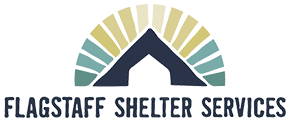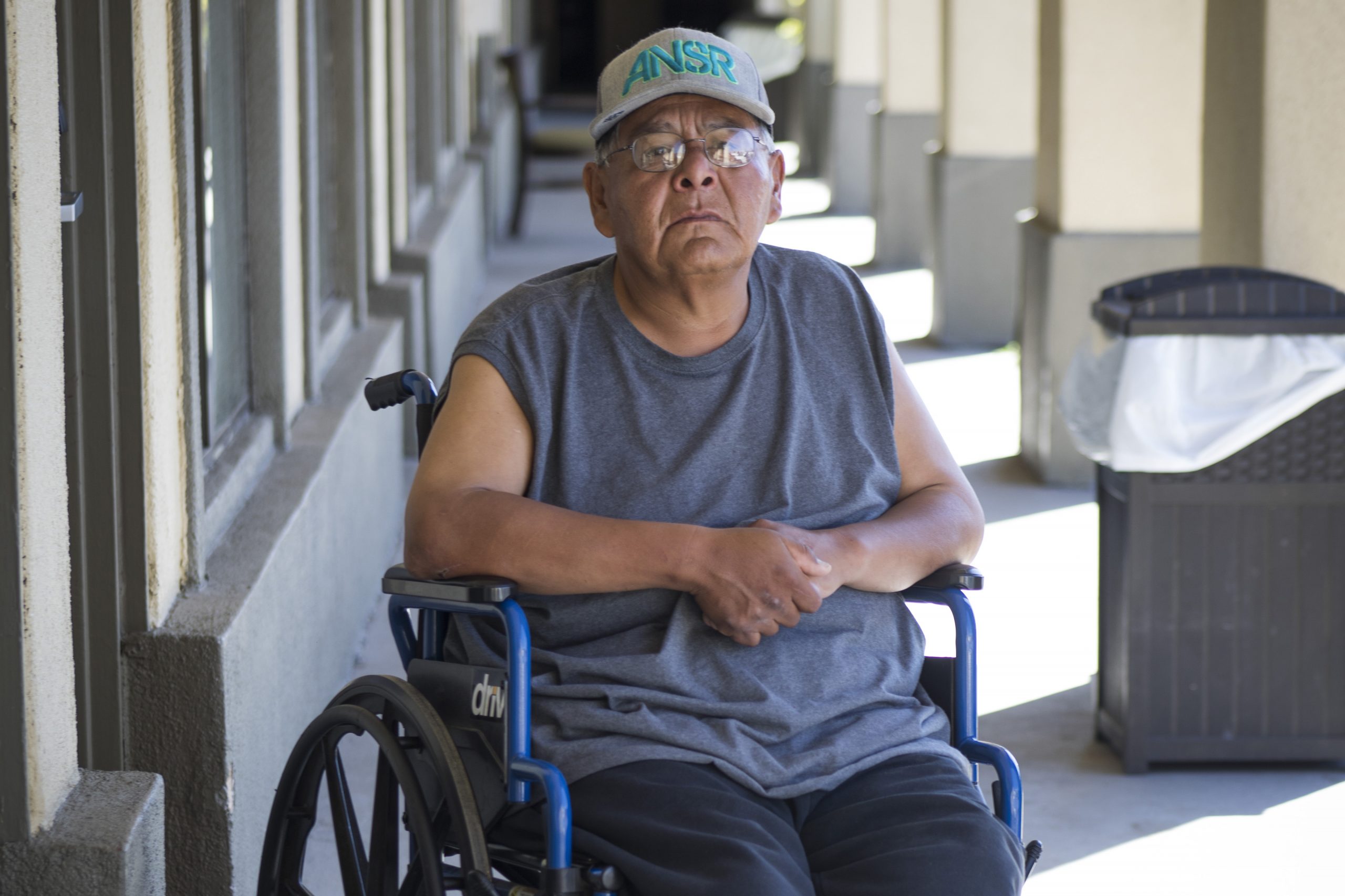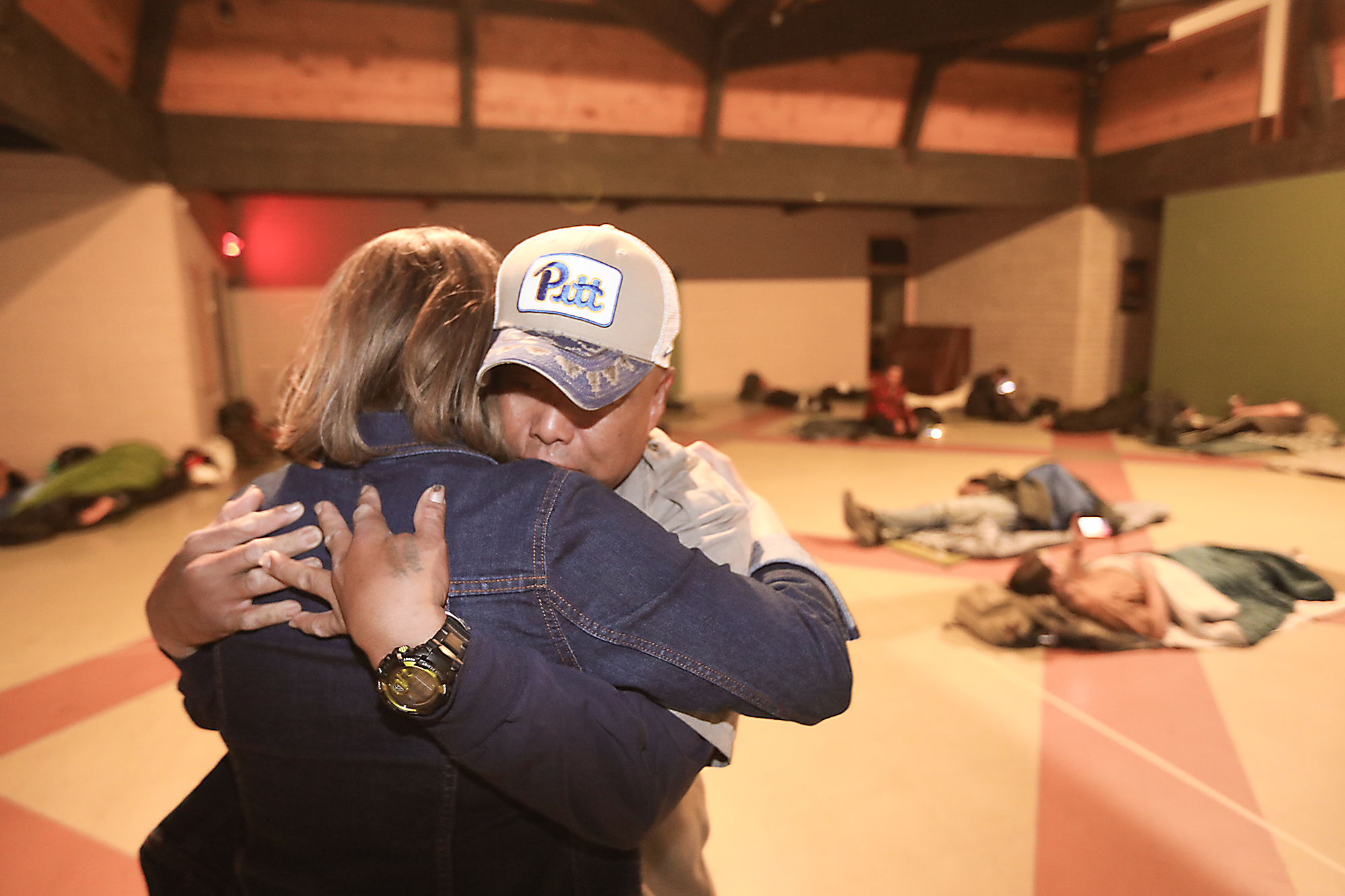Life looks different for so many around the world as we change and evolve in response to COVID-19. For Flagstaff Shelter Services, our primary concern has been to reduce the number of people sleeping in our group shelter – which has a newly expanded capacity of 170 – down to a number that allows us to follow CDC guidelines for social distancing as much as a group-shelter possibly can. So we started renting blocks of rooms at local hotels, and transitioned all of our senior citizens and medically vulnerable clients to their own individual rooms.
Doing so has drastically decreased our numbers at our group shelter, and is allowing more vulnerable clients the opportunity to effectively quarantine themselves.
Hotel-to-housing
While this is a workable temporary solution, we won’t be able to afford renting these rooms indefinitely. So we are ambitiously pushing forward with our Hotel-to-Housing staff challenge, emphasizing the importance of getting our clients who are staying in the hotels into homes of their own as soon as possible. We know that housing is healthcare and that having a home to call your own is the first step to gaining stability in other areas of your life, like health, job, or recovery. This has never been more clear than in the midst of a global pandemic, where we are being encouraged to protect ourselves by “staying home.” But what if you don’t have a home?
This is why we know that moving these neighbors out of the hotel and into housing is important not only from a personal and public health standpoint, but financially it is a much more sustainable option to invest the $2500 it takes to house one of our clients permanently, rather than the $60 a night it costs to give them shelter in a hotel.
A window into life at the hotels
There are so many reasons clients come to us for shelter. Life throws so many curveballs. Our staff and a local photographer wanted to document some of the journeys of these neighbors now staying in hotels to capture their experiences leading up to and during COVID-19.
“Cheryl”
One of our clients, we will call her Cheryl, is originally from Florida where she worked and raised her family. She used to be a draft technician, but right as she was about to retire, the company that she was working for went bankrupt, and she lost her whole 401K.
Cheryl had lived in a shared apartment here in Flagstaff since 2010, but her rent kept going up, and her fixed income could not accommodate the price of housing anymore. So, in November of 2019 she came to Flagstaff Shelter Services. She has been staying at the shelter ever since. Cheryl looks back on her time at the shelter, saying that it “has been nice for me. I haven’t had any problems. That shelter is very nice now, it is absolutely comfortable. Before [the expansion] it was hard because you would be on the floor if it was too crowded, but now it is really nice.”
But with the onset of COVID-19, at 72 years old and with a history of high blood pressure and respiratory issues, the staff at FSS identified Cheryl as a higher health risk and opted to move her to one of the rooms that we have rented in a motel. She is now able to more effectively quarantine herself in her own room.
Though different, Cheryl says that “moving from shelter to motel was easy. When they [FSS staff] told me they were moving all the seniors to the hotel I just came over, and registered at the office, and they give me a key. I like the way the meals are handed out here, this is very nice-it’s like a vacation I’m really enjoying myself!”
Circumstances are far from ideal, but we are grateful to be able to offer the opportunity for these neighbors to safely self-quarantine in a hotel room.
“Alfred”
Alfred has been experiencing homelessness since 2004. He used to camp out mostly, getting a hotel room whenever he had a job and could afford it. Back then he was living out on the reservation, but after his father passed away, he started to move around. With Flagstaff as the place he would always come back to, he spent some time in Phoenix, Globe, and even North Dakota for a few months for a job.
But last fall, he came back to Flagstaff for good, and with nowhere else to go, he ended up at the shelter again. He has been staying with FSS ever since. Alfred says the shelter “is somewhere that is nice for me to keep warm when it’s cold. A very much needed and good place to go.”
“I have both diabetes and high blood pressure that I work with [the staff at] North Country to manage.” It is because of these pre-existing medical conditions that Alfred was transferred over to a motel room. This time away from the group shelter is allowing him quiet and the opportunity to stay in and rest more often.
“Tony”
Tony is originally from Williams, AZ. He was living with his brother for a long time, until they eventually had a falling out, and then Tony had nowhere to go. After that he lived in his truck for a while, and was occasionally staying at the shelter since 2008. Then after his truck was impounded in 2015, Tony became a regular at Flagstaff Shelter Services. “I’ve had nothing, but you guys here [the staff at FSS]” said Tony.
Through the years and now thanks to the FSS Housing as Healthcare program, Tony has had on-going medical and behavioral health support both from North Country HealthCare and The Guidance Center. Because of a continuing heart condition and other chronic health issues, when moving clients into the hotels became an option, Tony was in the first round of clients to move in. When asked about his health, 63 year old Tony said that “other than my ticker, it’s all going pretty smooth.”
With a characteristic chuckle and a gesture to the hotel room around him, Tony said “The shelter is good to me, look at this… they take good care of me here.” And that is ultimately our goal. We hope to provide care and the immediate relief for clients in crisis. But the hotel is not the end goal… it is a way to give our clients a chance to quarantine while we connect them with the resources that they need to get back on their feet and into permanent housing. But we can’t do it alone. We need our whole community to band around these neighbors and invest in permanent solutions.
We need you, Flagstaff.






